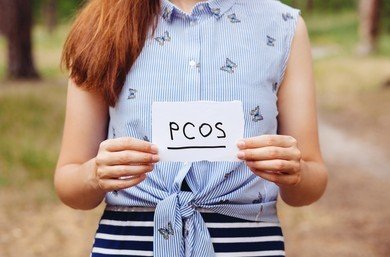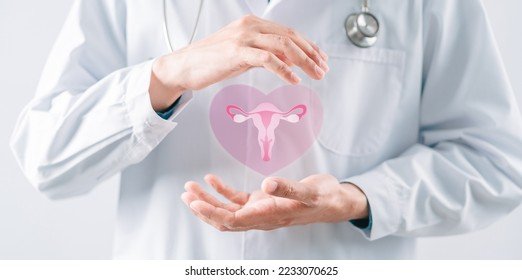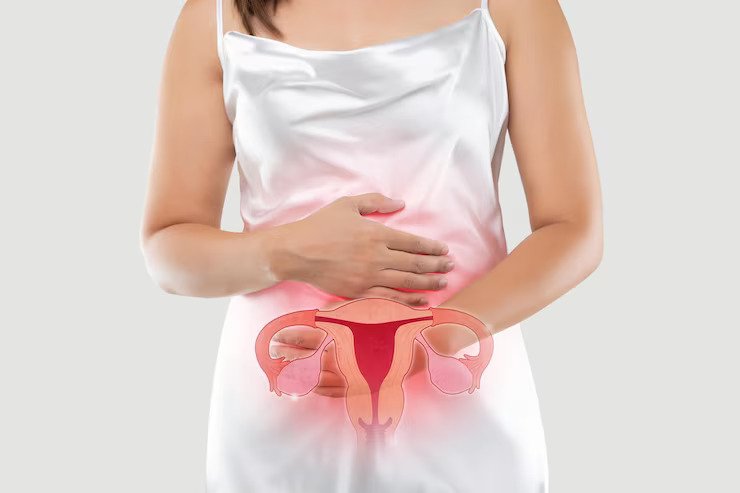Understanding PCOS And How To Manage It
Millions of women worldwide suffer from the common hormonal condition known as polycystic ovarian syndrome, or PCOS. Characterized by hormonal imbalances, irregular menstrual cycles, and cysts on the ovaries, PCOS can have significant implications for women’s reproductive health and overall well-being. In this article, we’ll explore the basics of PCOS, its symptoms, diagnosis, and effective management strategies.
What is PCOS?
PCOS is a complex hormonal disorder that affects the ovaries and often leads to irregular menstrual cycles, infertility, and metabolic disturbances. Key features of PCOS include:

- Ovarian Dysfunction: Women with PCOS may have enlarged ovaries with multiple small cysts.
- Hormonal Imbalances: PCOS is associated with elevated levels of androgens (male hormones) such as testosterone, which can disrupt ovulation and lead to acne, hirsutism (excessive hair growth), and male-pattern baldness.
- Insulin Resistance: Many women with PCOS also have insulin resistance, a condition in which cells fail to respond properly to insulin, leading to elevated blood sugar levels and an increased risk of type 2 diabetes.
Symptoms of PCOS
PCOS can manifest in various ways, and symptoms may vary from one individual to another. Common signs and symptoms of PCOS include:
- Irregular Menstrual Cycles: Women with PCOS may experience infrequent periods, prolonged periods, or no periods at all.
- Excessive Hair Growth: Hirsutism, or excessive hair growth on the face, chest, back, and other areas, is a common symptom of PCOS.
- Acne and Oily Skin: Elevated androgen levels can contribute to acne and oily skin.
- Weight Gain: Many women with PCOS struggle with weight gain or obesity, which can exacerbate hormonal imbalances and insulin resistance.
- Difficulty Getting Pregnant: PCOS is a leading cause of infertility due to irregular ovulation or lack of ovulation.
Diagnosis of PCOS
Diagnosing PCOS involves a comprehensive evaluation of symptoms, medical history, and laboratory tests. Diagnostic criteria for PCOS typically include:
- Irregular menstrual cycles or signs of ovulatory dysfunction.
- Clinical or biochemical signs of hyperandrogenism, such as hirsutism or elevated testosterone levels.
- Exclusion of other conditions that may mimic PCOS, such as thyroid disorders or adrenal gland disorders.
Management and Treatment Options for PCOS
While there is no cure for PCOS, various treatment options can help manage symptoms and improve overall health and quality of life. Treatment strategies for PCOS may include:
1. Lifestyle Modifications:
- Healthy Diet: Following a balanced diet low in refined carbohydrates and sugars can help manage insulin resistance and promote weight loss.
- Regular Exercise: Engaging in regular physical activity can improve insulin sensitivity, aid in weight management, and reduce cardiovascular risk.
- Stress Management: Stress reduction techniques such as mindfulness meditation, yoga, or deep breathing exercises may help alleviate stress and improve hormonal balance.

2. Medications:
- Oral Contraceptives: Birth control pills can regulate menstrual cycles, reduce androgen levels, and improve acne and hirsutism.
- Anti-androgen Medications: Drugs such as spironolactone may be prescribed to block the effects of androgens and reduce symptoms of hirsutism and acne.
- Metformin: This medication is commonly used to improve insulin sensitivity and regulate menstrual cycles in women with PCOS, particularly those with insulin resistance or prediabetes.
3. Fertility Treatments:
- Ovulation Induction: Fertility medications such as clomiphene citrate or letrozole may be prescribed to stimulate ovulation in women trying to conceive.
- In vitro Fertilization (IVF): Assisted reproductive technologies like IVF may be recommended for women with PCOS who have difficulty conceiving naturally.
4. Surgical Interventions:
- Ovarian Drilling: In some cases, a surgical procedure called ovarian drilling may be performed to improve ovulation by destroying a portion of the ovarian tissue using heat or laser.
Conclusion
PCOS is a common hormonal disorder that can have a significant impact on women’s reproductive health and overall well-being. Effective management of PCOS requires a comprehensive approach, including lifestyle modifications, medications, and, in some cases, fertility treatments. By working closely with a healthcare provider, women with PCOS can develop personalized treatment plans to manage symptoms, improve fertility, and promote long-term health.
For any further queries, Plz visit gynaecentre.in or you can check our social media accounts, Facebook, Instagram








